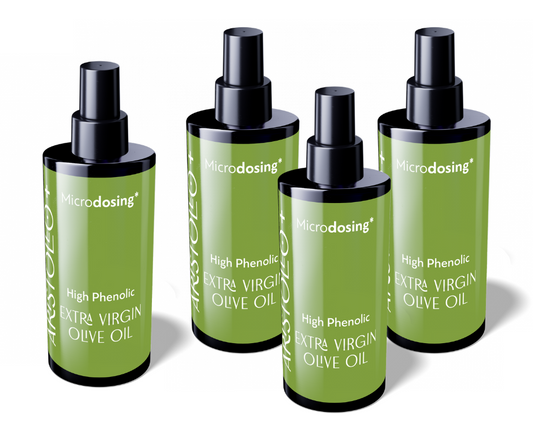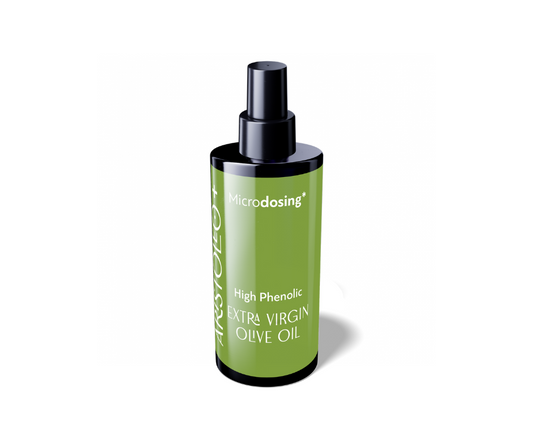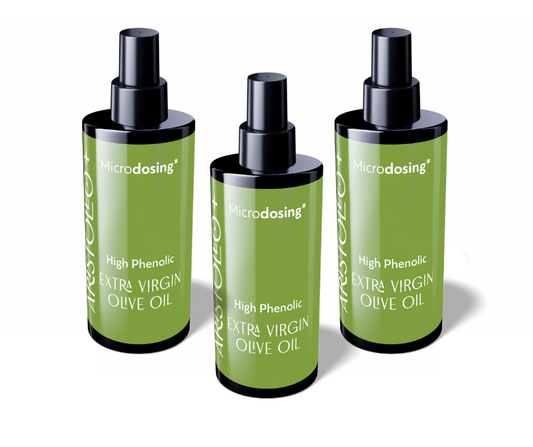
Miraculous Micronutrients
Health and vitality result from little choices you make every day, all day long.
When it comes to health and wellbeing and even happiness, it’s the little things that count. Your daily habits that build and sustain health and wellness. What are the little things that level up your nutritional regimen? It’s the daily intake of a variety of foods that ensure you get the full range of essential macronutrients and micronutrients to support vitality. It may sound simple enough but these days, it’s not so easy to get a broad range of the micronutrients that are vital to healthy development, disease prevention, and wellbeing.
Plant based phytonutrients offer a wealth of micronutrients that are pivotal to a robust immune system. After all, these are the elements produced by plants through the process where the plant converts the light energy of the sun to the chemical energy essential for growth, protection and propagation, in the process converting carbon dioxide to oxygen. We can enjoy similar contribution to our growth, resilience and longevity.
Even in this high-tech age, the low-tech plant continues to be the key to nutrition and health. - Jack Weatherford
In the Beginning You Were One Cell.
Stop and think a minute. The human body - yours, right now, the one you are now living in - has 37.2 trillion cells. You began with one. Then two, then three. As those first cells multiplied, they “decided” to become blood, heart, nose, fingers, eyes, brain, and stomach. And when you think how much you have changed since you were a single cell - or since you were born - or since last week, and continue to change moment by moment, you realize that there is a WHOLE LOT going on that you aren’t paying any attention to. And thank goodness. Imagine having to remember to keep your own heart beating! (Do you know where your car keys are?)
Our bodies are quite efficiently designed and we mostly take them for granted. And to a point, we can. Health is simple. Eat nutritious food, move your body throughout the day, breathe deeply, get adequate rest, manage stress and seek loving relationships in all you do. Happiness is healthy too.
Simple yes. But not so easy in this world we live in. In the race to feed the planet, many short cuts have been taken that may look all right but are not all right because they address the big picture not the little things. For example. Protein is one of the three macronutrients necessary for life, along with fats and carbohydrates. Animal flesh (please forgive me, my fellow vegetarians) is a complete protein. The original design was for our grazing or pecking animals to eat the grasses that our systems can’t digest or the bugs that our sensibilities reject and provide an array of critical nutrients not otherwise bioavailable through our human digestive systems. But that is no longer the norm.
Finding the Right Sources:
In the case of crops, some GMO has been beneficial, but in too many instances our soil has been depleted and the resulting crops denatured, meaning our foods no longer offer the full range of beneficial nutrients. Not only that, but in order to make fruits and vegetables appear healthy and nutritious, chemicals and fertilizers are used. Instead of consuming vegetables rich in nutrients from the soil, we are eating the equivalent of steroids used by body builders to bulk up. Not only that but our fruits and vegetables are picked unripe, often irradiated to slow aging, and transported long distances to arrive and sit on produce counters to ripen (age) under artificial lights. The question is how abundant are the essential micronutrients at the time we eventually eat the fruit or vegetable?
Now, our bodies are adaptable to the max. There would not be 7 billion people on the planet living in all manner of conditions if human beings were delicate. We are ever evolving - and our systems compensate for things missing - the little things… for a while. And then TILT. The immune system wobbles. Our elegantly efficient and resilient internal systems go out of whack, become imbalanced and the stage is set for illness. If not categorically ill, we do become vulnerable. But the beauty of the human body design is that it is ever striving for homeostasis - the self-regulating internal balance of biological systems for optimal functioning while continually adjusting to a changing external environment. When we support our bodies with the required nutrition, the body quickly responds.
The Wheels and Cogs of Macronutrients and Micronutrients:
The three macronutrient wheels in the a health supporting and nourishing diet are protein, fat, and carbohydrate. In a perfect world that would be complete protein, unsaturated fats (mono or polyunsaturated fats), and complex carbohydrates. “Macros” are the building blocks essential for health.
Micronutrients are vitamins, minerals and polyphenols that are essential for the most efficient and healthy functioning of the macronutrients for ultimate health and vitality. Long before the onset of any illness, micronutrient deficiencies can also lead to less clinically notable reductions in energy level, mental clarity and overall capacity. This can lead to inferior educational outcomes, reduced work productivity and increased risk from other diseases and health conditions.
Aside from vitamin D, the human body does not create these elements and must get them from food sources. The problem is our food sources are often lacking sufficient quantities. When I say sufficient quantities, I mean the minimum amount to assist the wheels to work at optimum efficiency. Many people resort to supplements. In moderation and with good nutritional counselling that is fine.
But the body is made for synthesizing whole foods and drawing what it needs based on your particular makeup. In short, given enough variety and quantity, the body knows best and is most efficient at utilizing and synergizing the various nutrients as needed - each body composition is unique.
What is a Whole Food?
A perfect example of a whole food is high phenolic extra virgin olive oil.
This distinct category of olive oil, rich in active bio-phenols, is the foundation of the Mediterranean Diet and for a long time was regarded simply as a healthy monounsaturated fat. Replacing animal fat like butter with olive oil is a simple first step in shifting your health up a notch.
However, in 2012 after years of research, the European Union registered a health claim for specific olive oils with phenolic compounds or polyphenols of a minimum of 250 mg per kg, as these polyphenols - micronutrients - protect the blood lipids against oxidative stress. In plain language, that means it reduces “bad” LDL cholesterol and supports heart health. This identified a distinct category of olive oils with proven health benefits and the means to measure phenolic compounds as the effect is dose dependent.
The health benefits of olive oil are 99 percent related to the presence of the phenolic compounds, not the oil itself.- Nasir Malik, research plant physiologist at the U.S.D.A.
Since that time, many clinical studies have shown phenolic compounds, some only found in olive oil, to have anti-inflammatory and antioxidant properties that are effective for the prevention of chronic disease and potential for therapeutic effect. In response to this EU Health Claim, an increasing number of producers are changing cultivation and production methods to raise health promoting levels of polyphenols.
Variety may be the spice of life, but it is also the foundation of a healthy gut and health protective microbiome. Choosing an array of micronutrient-rich foods - including, of course, High Phenolic (HP) EVOO - ensures that variety in micronutrients never gets boring.
Note: If you are on medication or under doctor's care, always advise you health professional that you are adding HP EVOO to your diet.
If you want to know more check out Precision Wellness
Questions? Ask athan@aristoleo.com
Featured collection
-
Aristoleo+ MicroDosing Starter
Regular price $32.00 USDRegular priceUnit price / per -
Daily Protocol Trio — 3 x 50 ml
Regular price $84.00 USDRegular priceUnit price / per$96.00 USDSale price $84.00 USDSale -
 Sale
SaleWellness Reserve
Regular price $112.00 USDRegular priceUnit price / per$128.00 USDSale price $112.00 USDSale



